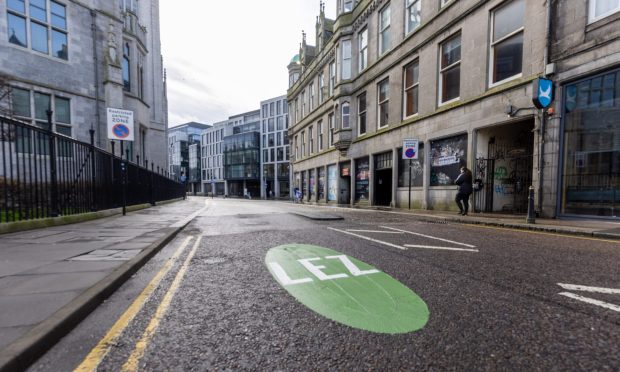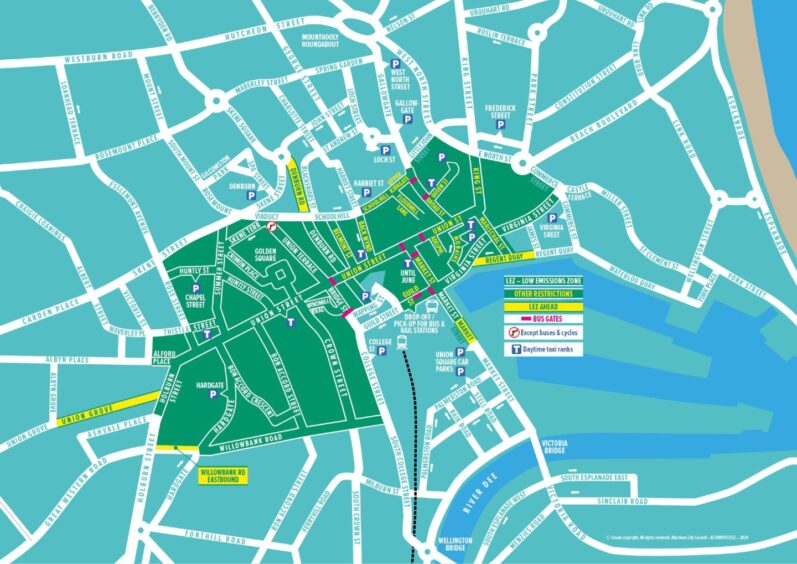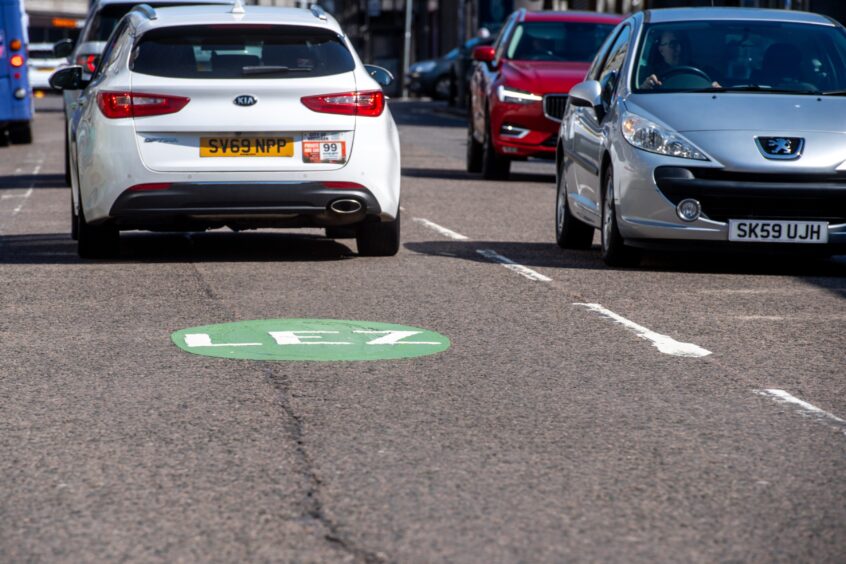A partner in the Aberdeen office of accountancy firm MHA has expressed concerns over the economic impact of Aberdeen’s Low Emission Zone (LEZ).
Enforcement of the LEZ, banishing non-compliant vehicles from the city centre, starts on Saturday.
There are some exemptions, including Blue Badge holders and emergency services.
But anyone else caught driving in the zone will be fined £60 fine, or £30 if paid within 14 days.
Good intentions
LEZs are being established in Scotland’s main cities in an attempt to cut CO2 emissions.
Mark Brown, of MHA, agreed improving air quality was crucial to the environment and public health.
But he said business owners in Aberdeen had “valid concerns”.
He added: “It’s undoubtedly a scheme that divides opinion.
“While few would argue with the need to improve air quality in our city centres, great consideration must be given to the potential economic impact the changes may bring.
“That could be for firms who service the city centre with heavy goods vehicles, taxis or vans, or for a feared drop in customer footfall for those whose cars do not meet the eligibility criteria.
“Some businesses simply can’t afford in the current economic climate to replace non-compliant vehicles. Some have paid out hundreds of thousands of pounds for new trucks, but many cannot do this. Smaller non-compliant vans used for city centre work will have to follow a diverted route, adding extra miles – isn’t this counter-productive?”
Mr Brown also highlighted growing fears about wider, negative economic ramifications.
He explained: “There is a valid concern over the impact on city centre footfall and a belief the scheme unfairly impacts low-income and disabled people, students and those who drive for their job.
“There could be displacement of non-compliant vehicles into outlying areas.
“As well as increasing higher polluting vehicles in these areas, it could also encourage more shoppers to travel to out-of-town retail parks.”
Government help is there, but there are limitations to this in terms of business size and the type of vehicles.”
He added: “There is a disproportionate impact on businesses that cannot afford less-polluting vehicles or alternative forms of transport.
“Government help is there, but there are limitations to this in terms of business size and the type of vehicles.”
Share your views on the Aberdeen LEZ in our comments section at the foot of this article
The Energy Savings Trust’s LEZ Retrofit Fund grants cover up to 70% of the cost of a vehicle retrofit for micro businesses or sole traders within a 20-kilometre (12.5-mile) radius of the LEZ, with limits applying.
These limits are:
- Up to £5,000 per light commercial vehicle or wheelchair accessible taxi installing retrofit exhaust after-treatment systems.
- Up to £10,000 per wheelchair accessible taxi installing re-powering technology.
- Up to £16,000 per heavy goods vehicle or refuse collection vehicle.
The businesses must:
- Employ fewer than nine full-time equivalent employees.
- Have had a turnover of £632,000 or less, or a balance sheet of up to £316,000 in the preceding and current financial year.
- Not be VAT-registered
An LEZ is only accessible to vehicles that meet minimum emission standards.
Typically, the zone will have an impact on diesel vehicles registered before September 2015 and petrol vehicles registered before 2006.
Mr Brown said: “Looking at the potential benefits, restricting access for the most polluting vehicles to improve air quality helps protect public health within cities, making them more attractive places in which to live, work and to visit.
There is an argument that local authorities should be incentivising city centre use in the current economic climate, not adding more hurdles.”
“It leads to increased use of public transport and active travel where people walk or cycle, while also encouraging people to use more environmentally friendly vehicles.
“Improving the air quality in Aberdeen is a valid key aim, however, the economic concerns of businesses based in or servicing the city centre are understandable.
“There is an argument that local authorities should be incentivising city centre use in the current economic climate, not adding more hurdles. Continued improvement of public transport and making city centre rates more affordable would contribute to this.”
Read more: All you need to know about Aberdeen’s LEZ




Conversation